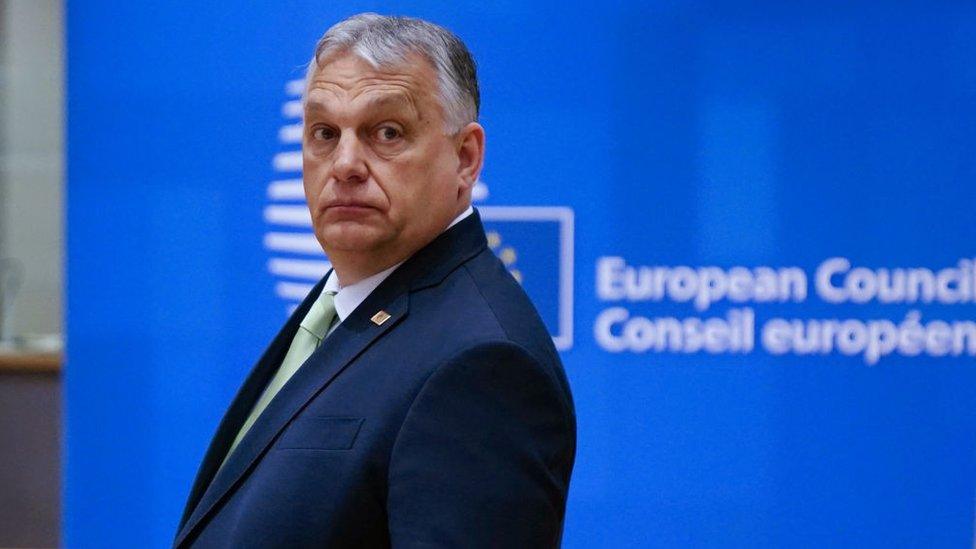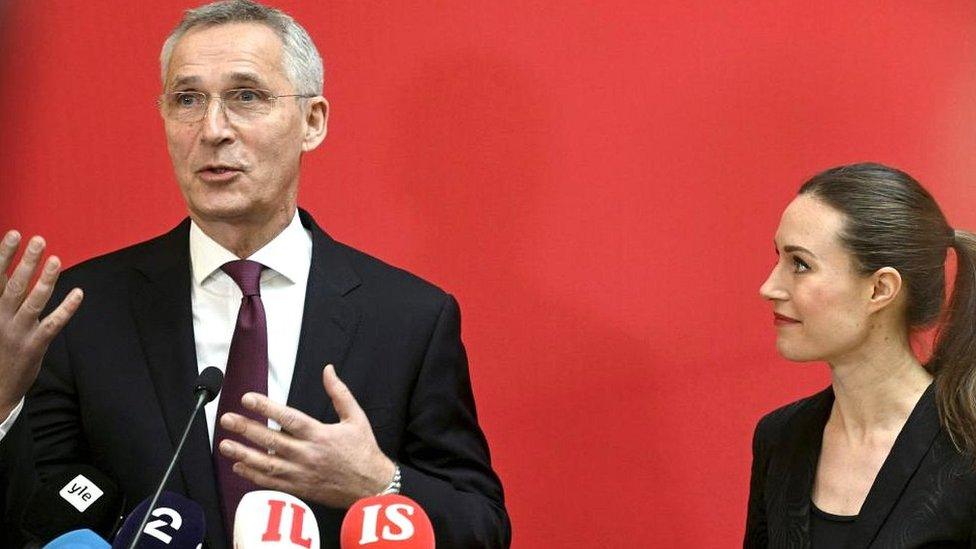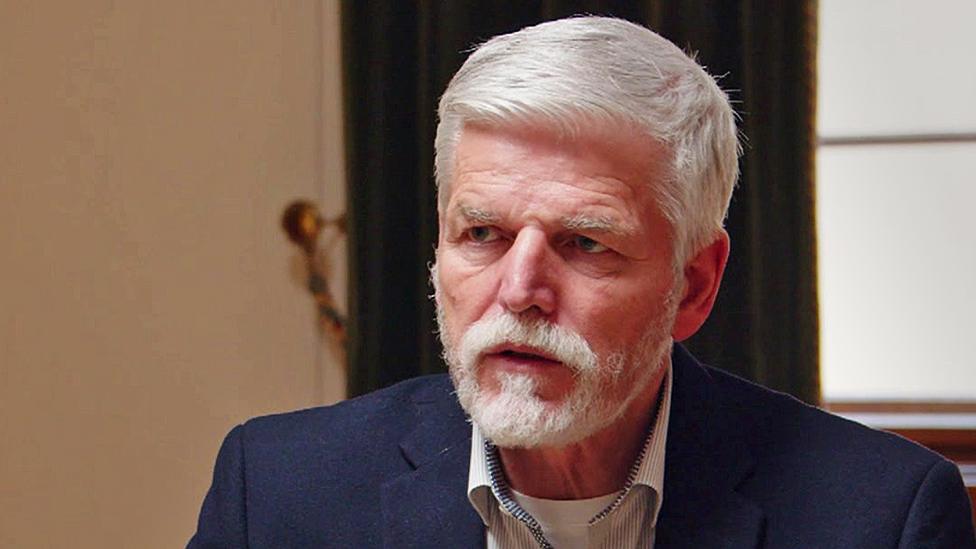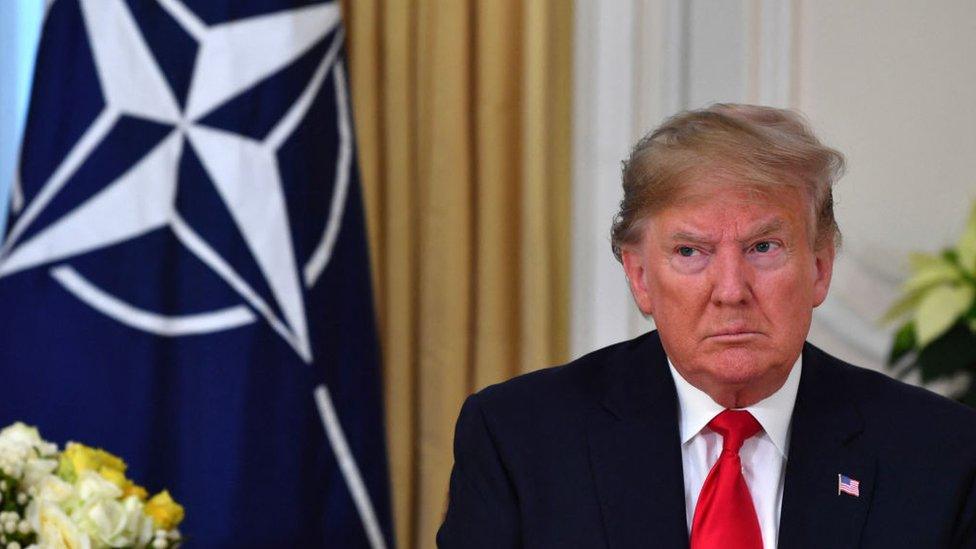Ukraine in Nato: Orban casts doubt on long-term membership plan
- Published

Viktor Orban
Hungary's Prime Minister Viktor Orban has cast doubt on Ukraine's long-held aspiration to join Nato.
His intervention came after the bloc's boss, Jens Stoltenberg, said on Friday that "all Nato allies have agreed that Ukraine will become a Nato member".
Mr Stoltenberg has consistently said Kyiv will join Nato in the medium term, once the Russian invasion is over.
But Mr Orban was quick to express his surprise at the latest claim in a one-word tweet on Friday afternoon.
"What?!" the Hungarian prime minister exclaimed, reacting to an article on Mr Stoltenberg's comments.
Nato is a military alliance of 31 countries, mainly in Europe, but also including the US and Canada. Hungary, like all members, can veto new members joining.
Nato members - including Hungary - agreed in 2008 that Ukraine would eventually join the alliance, while denying it immediate membership., external
Joining the bloc brings the protection of Nato's Article Five, which says an attack on one member is an attack on all.
In effect, it means that if Ukraine were invaded or attacked all Nato members - including the US - would come to its aid.
But Hungary, which joined Nato in 1999, has already shown a willingness to oppose the expansion of the alliance. After months of delays, it signed off on Finland's bid to join in March.
And it has joined with Turkey in holding up Sweden's bid. In March government spokesperson Zoltán Kovács accused officials in Sweden of sitting on a "crumbling throne of moral superiority".
Watch: US defence secretary seeks to hearten Nato relations
Relations have long been tense between Kyiv and Budapest.
Mr Orban is less critical of Russian President Vladimir Putin than other Western leaders. And while his government has condemned the illegal invasion of Ukraine, the Hungarian leader has not sent arms to Kyiv.
Hungary has also spent years blocking high-level summits between Nato officials and Ukrainian military leaders, claiming to have concerns over the rights of Hungarian speakers in western Ukraine.
Despite his assertion, Mr Stoltenberg conceded at a meeting at the Ramstein US air base in Germany that Kyiv's bid to join the alliance was not an immediate priority.
"The main focus now is of course on how to ensure that Ukraine prevails [in the war with Russia]," he said. "Without a sovereign, independent Ukraine, there is no meaning in discussing membership."
But Budapest's stance promises to ignite a fresh dispute within Nato.
The bloc's eastern members have spent months pushing officials to give Kyiv an accession timeline and to provide signals that it is making progress to joining the alliance.
Mr Stoltenberg also said he was confident Ukraine could regain ground in a much-anticipated counter-offensive.
"I'm confident that they will now be in a position to be able to liberate even more land," he said.
There has been talk for some weeks of Ukraine launching a spring offensive against Russian forces, whose own offensive in the eastern Donbas region has largely stalled.
Ukraine's Deputy Defence Minister Hanna Maliar said on Wednesday that some aspects of the planned counteroffensive were already underway.

- Published28 February 2023

- Published1 February 2023

